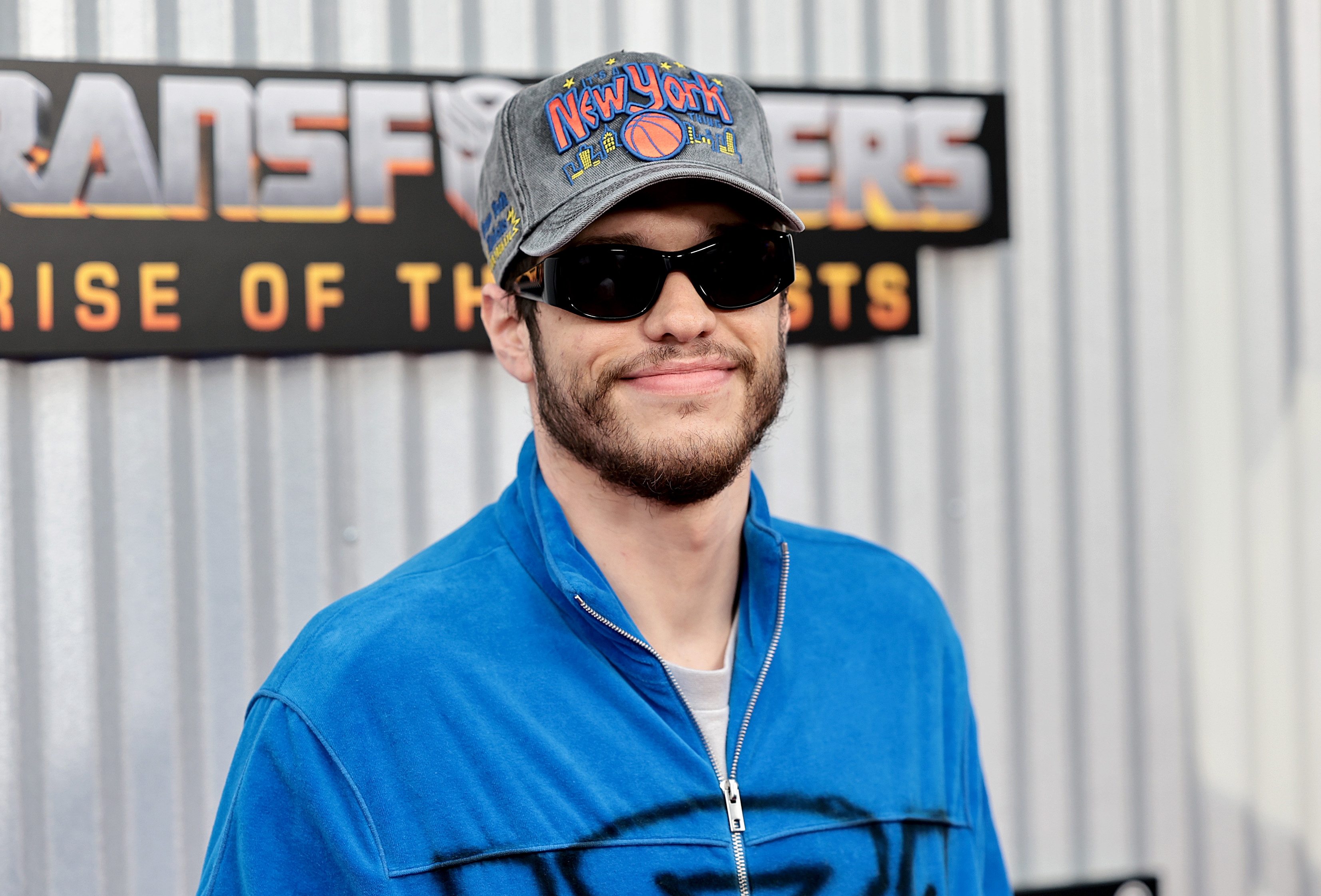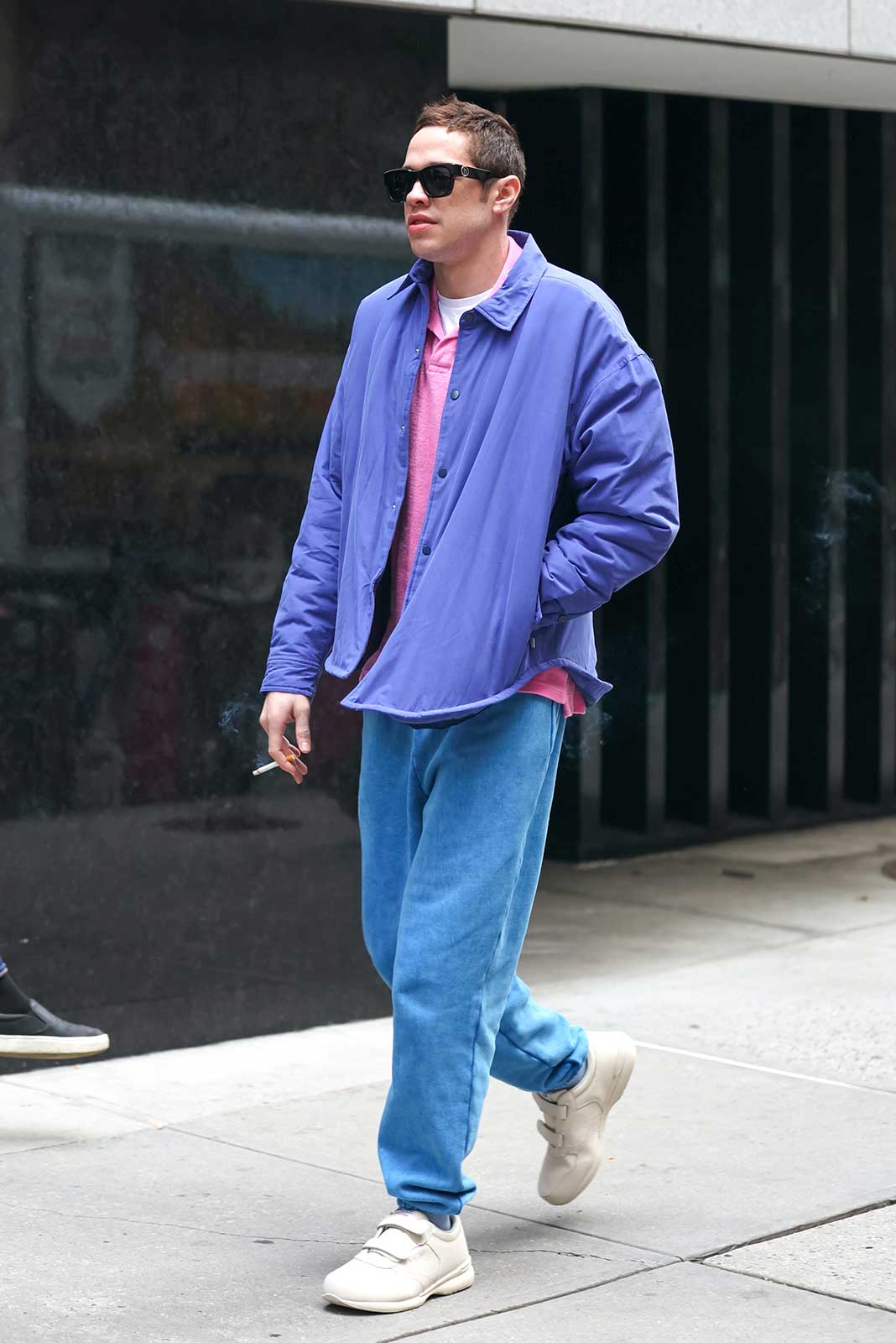Pete Wentz Chicago: The Unsung Architect Of Emo's Heartbeat
The vibrant, ever-evolving tapestry of American music owes much to its regional scenes, and few cities have shaped a genre quite like Chicago. Within this dynamic landscape, one figure stands out as an undeniable force, not just as a musician but as a cultural architect: Pete Wentz. His journey, deeply intertwined with the Windy City, transformed him from a local punk enthusiast into a global rock icon, forever etching his name into the annals of music history. The story of Pete Wentz Chicago is not merely a tale of a band's rise; it's a narrative of ambition, creativity, and the relentless pursuit of artistic expression that resonated with millions.
While the name "Pete" might bring to mind various public figures, from comedians like Pete Davidson, known for his work on Saturday Night Live, to political figures such as Pete Buttigieg, the focus here is squarely on Peter Lewis Kingston Wentz III. This article delves into the profound impact of Pete Wentz, exploring his roots in Chicago, his pivotal role in forming and propelling Fall Out Boy to superstardom, and his multifaceted contributions beyond music. We will uncover how his formative years in Chicagoland laid the groundwork for a career defined by innovation, resilience, and an unwavering connection to his artistic vision.
Table of Contents
- Pete Wentz Chicago: Roots of a Rock Icon
- Biography of Pete Wentz
- From Local Stages to Global Stardom: Fall Out Boy's Ascent
- Beyond the Bass Guitar: Pete Wentz's Creative Ventures
- The Enduring Legacy of Pete Wentz in Chicago's Music Scene
- Pete Wentz: A Public Figure's Journey and Personal Life
- Navigating Fame: Mental Health and Public Scrutiny
- The Future of Pete Wentz and His Chicago Connection
- Why Pete Wentz Chicago Remains a Cultural Touchstone
Pete Wentz Chicago: Roots of a Rock Icon
Early Life and Influences in Chicagoland
Born Peter Lewis Kingston Wentz III on June 5, 1979, in Wilmette, Illinois, a northern suburb of Chicago, Pete Wentz's formative years were steeped in the rich cultural tapestry of the Chicagoland area. His background was unique, with his grandfather, Arthur Winston Wentz, having served as the U.S. Ambassador to Sierra Leone, and his great-grandfather being a prominent figure in African-American history. This diverse heritage, coupled with his upbringing in a politically active family, likely contributed to his later outspokenness and engagement with social issues.
Wentz attended New Trier High School, where he was a standout soccer player, even considering a professional career. However, his burgeoning passion for music soon eclipsed his athletic ambitions. The vibrant Chicago punk and hardcore scene of the late 1990s served as his primary incubator. He was deeply embedded in this underground world, frequenting local venues and absorbing the raw energy of bands that prioritized authenticity and DIY ethics. Before Fall Out Boy, Wentz cut his teeth in several local hardcore bands, including Arma Angelus, Yellow Road Priest, and Racetraitor. These early experiences, though less commercially successful, were crucial in shaping his songwriting, stage presence, and understanding of the music industry's grassroots mechanics. The collaborative and often intense nature of the Chicago hardcore scene taught him resilience, creative collaboration, and the power of a dedicated fan base – lessons he would carry into his future endeavors.
The Genesis of Fall Out Boy in Chicago
The true turning point in Pete Wentz's musical journey, and arguably for the broader emo-pop genre, came with the formation of Fall Out Boy in 2001. The band's origins are firmly rooted in the Chicago suburbs. Wentz, then a bassist and lyricist, connected with guitarist Joe Trohman through mutual friends in the local hardcore scene. Trohman, in turn, introduced Wentz to Patrick Stump, who initially auditioned as a drummer but quickly impressed with his vocal prowess, becoming the band's lead singer and primary composer. Andy Hurley, a seasoned drummer from other Chicago-area bands, later joined to complete the iconic quartet.
Their early days were quintessential Chicago punk: playing small clubs, recording demos, and building a following through word-of-mouth and relentless touring. The band's name, famously suggested by an audience member at one of their early shows (a reference to a character from The Simpsons), perfectly captured their irreverent and relatable spirit. Their debut mini-LP, "Fall Out Boy's Evening Out with Your Girlfriend," released on Uprising Records in 2003, offered a glimpse into their unique blend of pop-punk melodies and Wentz's verbose, often introspective lyrics. This foundational period in Chicago was critical; it allowed them to hone their sound, develop their identity, and cultivate the raw energy that would soon propel them onto the national and international stage. The city's supportive yet competitive music environment provided the perfect crucible for their evolution.
Biography of Pete Wentz
Pete Wentz is not just a musician; he's a multi-talented artist, entrepreneur, and cultural commentator whose influence extends far beyond the stage. His career trajectory showcases a remarkable blend of creative vision and business acumen, making him one of the most recognizable figures in alternative rock. Below is a snapshot of his key biographical details:
| Attribute | Detail |
|---|---|
| Full Name | Peter Lewis Kingston Wentz III |
| Born | June 5, 1979 (Age: 44 as of late 2023) |
| Birthplace | Wilmette, Illinois, U.S. |
| Occupation | Musician, Songwriter, Author, Entrepreneur, Record Label Executive, TV Personality |
| Known For | Bassist and primary lyricist for Fall Out Boy |
| Genres | Pop Punk, Emo, Alternative Rock, Pop Rock |
| Instruments | Bass, Vocals |
| Active Years | 1997–present |
| Labels | Fueled by Ramen, Island, DCD2 Records (formerly Decaydance) |
| Notable Projects | Fall Out Boy, Black Cards, Clandestine Industries, Decaydance Records |
| Spouse(s) | Ashlee Simpson (m. 2008; div. 2011) |
| Partner | Meagan Camper (since 2011) |
| Children | 3 (1 with Simpson, 2 with Camper) |
From Local Stages to Global Stardom: Fall Out Boy's Ascent
After their initial independent releases, Fall Out Boy's breakthrough came with their major-label debut, "Take This to Your Grave," in 2003. This album, still considered a landmark in the emo-pop genre, showcased Wentz's intricate and often poetic lyrics, perfectly complemented by Stump's powerful vocals and the band's energetic instrumentation. Tracks like "Grand Theft Autumn/Where Is Your Boy" and "Saturday" quickly became anthems for a generation of disaffected youth, resonating with their angst and desire for connection. The album's success propelled them out of the Chicago club circuit and onto national tours, building a fervent fan base.
However, it was "From Under the Cork Tree" (2005) that truly launched Fall Out Boy into the stratosphere. Featuring smash hits like "Sugar, We're Goin Down" and "Dance, Dance," the album sold millions worldwide, earning the band a Grammy nomination for Best New Artist. Wentz's lyrics, often dense with pop culture references and literary allusions, became a signature element, distinguishing Fall Out Boy from their peers. His distinctive basslines, though sometimes understated, provided the rhythmic backbone for their catchy, guitar-driven sound. The band's relentless touring schedule, combined with Wentz's charismatic and often enigmatic public persona, cemented their status as global rock stars.
Subsequent albums like "Infinity on High" (2007) and "Folie à Deux" (2008) continued to push their musical boundaries, experimenting with different sounds while retaining their core identity. Wentz's role as the band's primary lyricist meant he was crafting narratives that spoke directly to the experiences of young people grappling with identity, relationships, and societal pressures. His words were often witty, self-deprecating, and deeply emotional, creating a powerful connection with listeners. Even during the band's hiatus from 2009 to 2013, Wentz remained a prominent figure, exploring other creative avenues, which only fueled anticipation for Fall Out Boy's eventual return. Their comeback album, "Save Rock and Roll" (2013), proved their enduring relevance, demonstrating that the appeal of Pete Wentz Chicago and his band was far from over.
Beyond the Bass Guitar: Pete Wentz's Creative Ventures
Fashion, Literature, and Media in Chicago and Beyond
Pete Wentz's creative energies were never confined solely to music. He quickly diversified his portfolio, becoming a multi-faceted entrepreneur and artist. One of his most notable ventures was Clandestine Industries, a clothing company he founded in 2005. The brand, known for its distinctive bat-skull logo and dark, edgy aesthetic, became synonymous with emo and alternative fashion, worn by fans and celebrities alike. Clandestine Industries wasn't just a clothing line; it was an extension of Wentz's artistic vision, offering another medium through which he could express his unique style and connect with his audience. The company's roots, much like Fall Out Boy's, were nurtured in the cultural hotbed of Chicago, reflecting the city's influence on his creative outlook.
Wentz also delved into the literary world. In 200



Detail Author:
- Name : Braeden Wunsch
- Username : bridie78
- Email : erdman.maria@wolff.com
- Birthdate : 1999-07-22
- Address : 12026 Doris Mall Heidishire, HI 15219-6663
- Phone : 334.421.9980
- Company : Gislason-Herzog
- Job : Host and Hostess
- Bio : Neque pariatur fugit atque neque. Libero voluptatem officiis odio cupiditate dolores. Possimus necessitatibus nesciunt consequatur sed.
Socials
tiktok:
- url : https://tiktok.com/@eva5393
- username : eva5393
- bio : Nulla est in voluptate aut ea ducimus. Sint at quod et quisquam.
- followers : 6604
- following : 250
linkedin:
- url : https://linkedin.com/in/eva4644
- username : eva4644
- bio : Porro hic a et rem pariatur sint.
- followers : 6283
- following : 2061